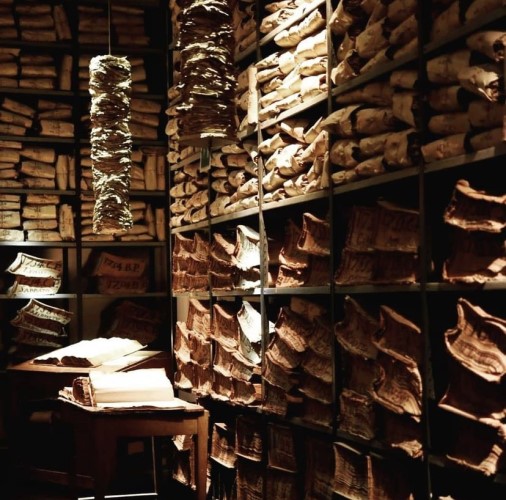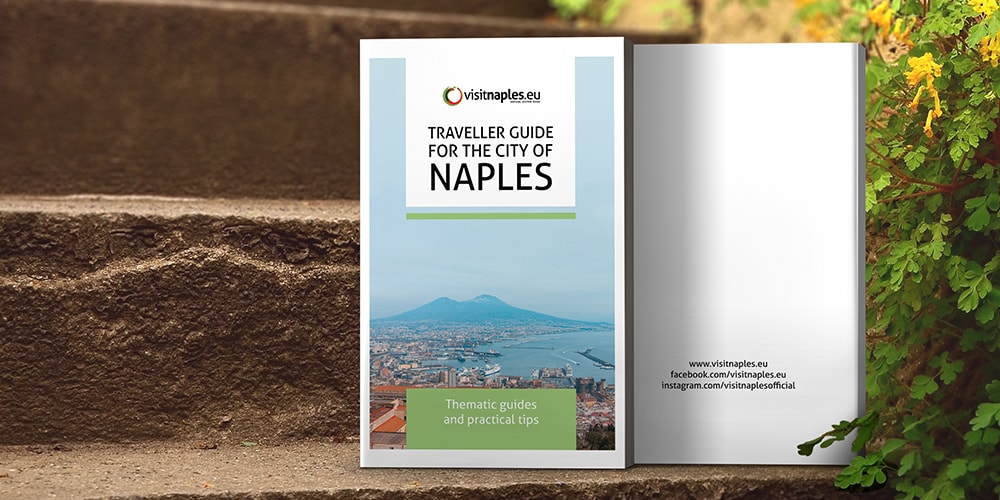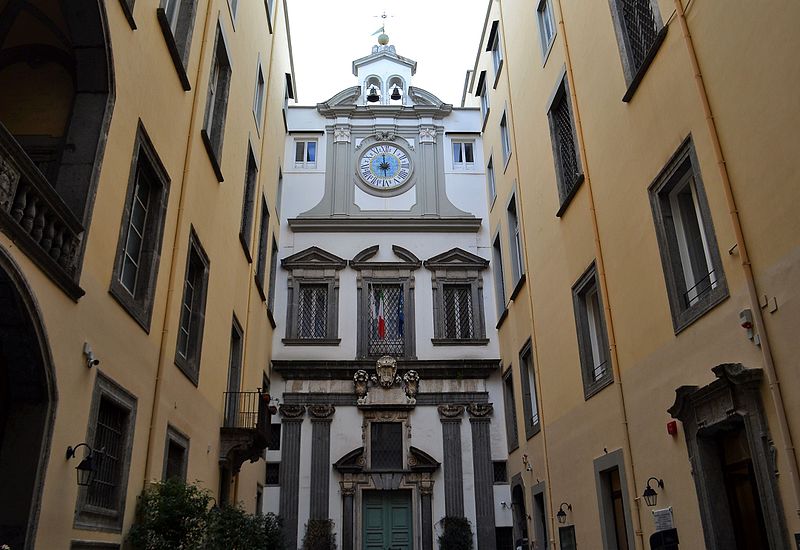Neapolitan pride: the Historical Archive of the Fondazione Banco di Napoli is a candidate for UNESCO World Heritage status.
One of the most important archival collections. Banking documentation globally, with documents and contents relevant to the entire Mezzogiorno's economic, social, and artistic history.
Photo cover: Facebook Fondazione Banco di Napoli
Candidacy for UNESCO World Heritage List for the historical archive

The Fondazione Banco di Napoli itself gave the news. The proposal for inclusion in the Memory of the World Register was by Italian National Commission for UNESCO to the Secretariat of the Memory of the World Programme in Paris.
Support for the proposal was by the Foundation and Archival and Bibliographic Superintendence of Campania of the Ministry of Culture. The newly elected mayor of Naples, Gaetano Manfredi, was also enthusiastic. 'The candidature of the ancient Neapolitan public banks to become a UNESCO World Heritage Site is extraordinary news for our city, Southern Italy and the whole of Italy'.
According to him, the historical archive of the Fondazione Banco di Napoli is an unparalleled source of knowledge to keep the memory of its historical institutions alive. As a representative of the City of Naples, he undertook to do his utmost to ensure that this candidacy. It could be promoted in all the relevant fora so that Naples could increasingly become the European capital that its history deserves.
Photo credits: ildenaro.it
Winning the 2017 Europa Awards
Other awards obtained by the Fondazione Banco di Napoli include its multimedia museum ilCartastorie. In 2017, one of the winners of the Europa Awards, one of the highest European honours in cultural and monumental heritage.
It houses more than a billion documents that reconstruct the history of Naples. The highlight was the enormous heritage of stories and personalities preserved in the writings of the ancient Neapolitan public banks.
Approximately 80 km of shelves contain 17 million names, hundreds of thousands of payments and detailed records that reconstruct a living fresco of Naples and the entire Mezzogiorno from 1573 to the present day. A treasure trove of memories spanning 450 years.
It uses every dissemination channel available, from multimedia to creative writing. ilCartastorie gives back to the city and the world the voices, stories, and events immortalised in the countless pages of the Banco di Napoli Historical volumes Archives.
Photo credits: Facebook Fondazione Banco di Napoli
What does the Historical Archive of the Fondazione Banco di Napoli preserve?
The Fondo Apodissario of the Archivio Storico, the subject of the UNESCO nomination, collects the transactions of the eight public banks of Naples between the 16th and early 19th centuries and constitutes a unique documentary heritage of historical knowledge of the modern age on a European scale and beyond. About 330 rooms of pure history.
There are contents and news relevant to the southern regions' economic, social, and artistic history and documents concerning the structure and evolution of the credit institutions and commercial contracts with European nations. In particular, the value of the Fund lies in the evidence. It shows the fundamental passage from money to the birth of Fedi di Credito (promissory notes), forerunners of modern order and Madrefedi, a sort of current primordial account.
It also traces the history and demographic, urban and cultural development of the city of Naples. It is located in the headquarters of the Fondazione Banco di Napoli, in Via dei Tribunali, in the 16th-century Palazzo Ricca and the adjoining Palazzo Cuomo.
Photo credits: Peppe Guida (CC BY-SA 4.0)
The word from Rossella Paliotto, President of Fondazione Banco di Napoli
Rossella Paliotto, President of the Fondazione del Banco di Napoli, states that "the Apodissario Fund has the power to pass on historical events of universal value and bears the precise traces of epochal events". It is why it is precious, fundamental and irreplaceable for learning about the events of city life and helping to illuminate the history of Naples. Significant capital of the Modern Age, whose historic centre is already a Unesco heritage site.
Furthermore, the President stated, "Reaching the candidacy resulted from great teamwork". All the institutions must work together to achieve the final result, i.e. entry on the UNESCO World Heritage List.
UNESCO established the programme in 1992 in response to the need and growing awareness of the precarious state of preservation of and access to documentary heritage in various parts of the world.
Photo credits: Elliott Brown (CC BY-SA 4.0)










,_Naples_-_Palazzo_Banco_di_Napoli_-_Fondazione_dell'istituto_anno_1539_Elliott Brown.jpg)


Lascia un commento